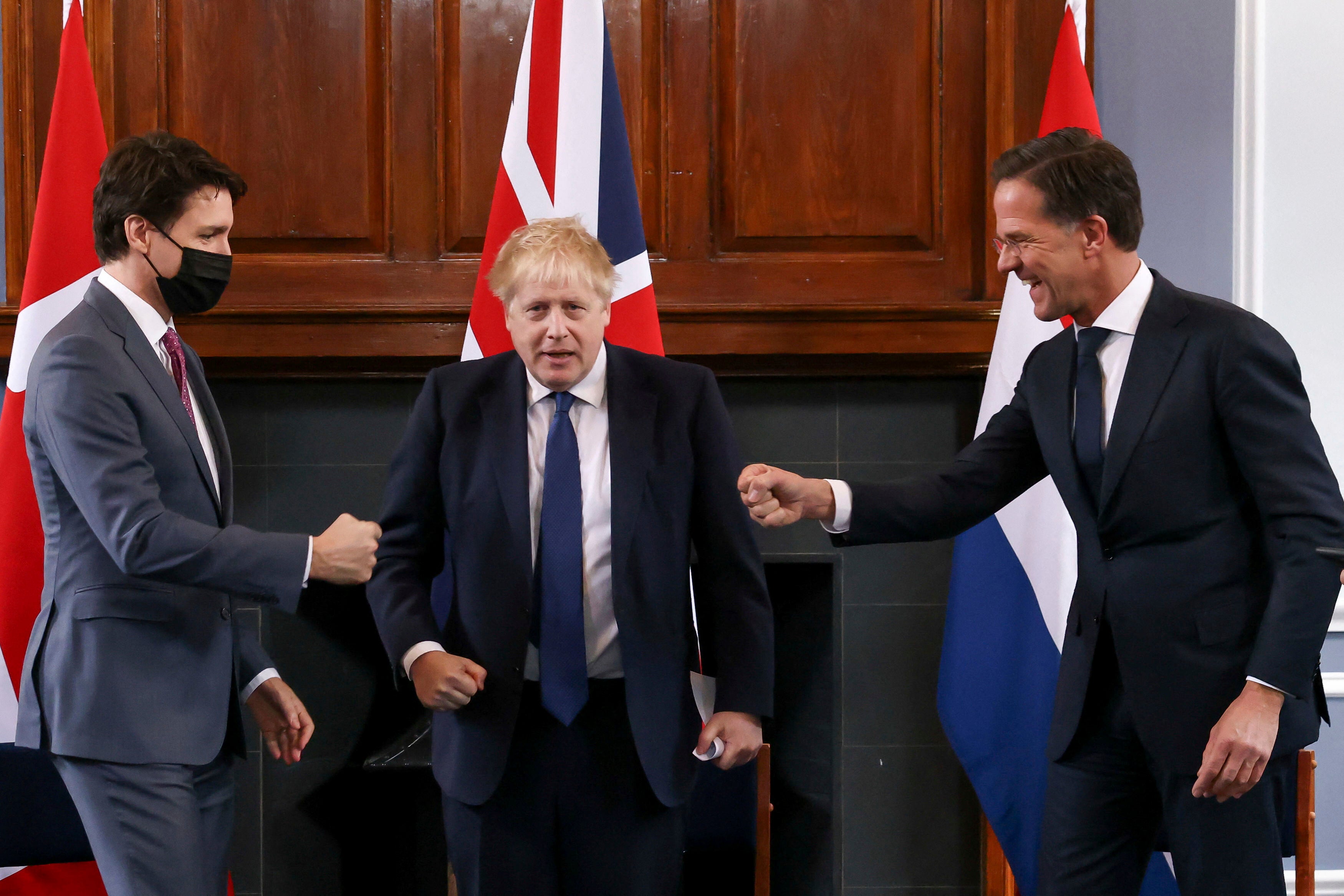Stung by criticism, UK's Johnson speeds up Russia sanctions
U.K. lawmakers are set to pass a bill aimed at toughening sanctions on Russia and rooting out ill-gotten money from the British economy

Your support helps us to tell the story
From reproductive rights to climate change to Big Tech, The Independent is on the ground when the story is developing. Whether it's investigating the financials of Elon Musk's pro-Trump PAC or producing our latest documentary, 'The A Word', which shines a light on the American women fighting for reproductive rights, we know how important it is to parse out the facts from the messaging.
At such a critical moment in US history, we need reporters on the ground. Your donation allows us to keep sending journalists to speak to both sides of the story.
The Independent is trusted by Americans across the entire political spectrum. And unlike many other quality news outlets, we choose not to lock Americans out of our reporting and analysis with paywalls. We believe quality journalism should be available to everyone, paid for by those who can afford it.
Your support makes all the difference.U.K. lawmakers are set to pass a bill on Monday aimed at toughening sanctions on Russia and rooting out ill-gotten money from the British economy.
Prime Minister Boris Johnson said the Economic Crime Bill will let British authorities ”pursue (Russian President Vladimir) Putin’s allies in the U.K. with the full backing of the law, beyond doubt or legal challenge.”
Johnson was meeting Canadian Prime Minister Justin Trudeau and Dutch leader Mark Rutte on Monday to discuss toughening the West’s response to the invasion.
But critics say the British government is trying — belatedly — to fix problems of its own making. Opposition politicians and anti-corruption campaigners say Johnson’s Conservatives have allowed ill-gotten money to slosh into U.K. properties, banks and businesses for years, turning London into a “laundromat” for dirty cash.
Johnson has repeatedly claimed that Britain is leading international efforts to punish Putin over the invasion of Ukraine. The U.K. has slapped sanctions on a host of Russian banks and businesses, measures the government says have curtailed more than 250 billion pounds' ($330 million) worth of Russian economic activity. So far, though, it has sanctioned only a handful of Kremlin-linked individuals with assets in Britain, fewer than either the European Union or the U.S.
That has drawn heavy criticism, which appears to be having an effect. Two weeks ago, Johnson said the Economic Crime Bill would be passed in the fall. On the weekend, he announced it would be rushed through Parliament on Monday.
The bill will require overseas firms with assets in Britain to reveal their true owners, an attempt to crack down on money-laundering and the use of shadowy shell companies to buy businesses and properties.
Initially, the legislation gave businesses 18 months to comply. That has been shortened to six months — but critics say it should be even shorter. Labour Party business spokesman Jonathan Reynolds said the grace period amounted to a “get out of London free card” for oligarchs.
Opposition lawmakers are urging the government to immediately seize oligarchs’ properties in Britain, emulating Italy, which has seized 143 million euros ($156 million) in luxury yachts and villas.
The government says the new law will also make it easier to slap sanctions on people and firms who have already been sanctioned by allies including the U.S., Canada and the EU. Critics say the current rules involve too much legal red tape that can be used to forestall sanctions.
Britain’s Conservatives, in power since 2010, pride themselves on making the U.K. an attractive place for the world’s wealthy to live and invest. Many of the ultra-rich own London mansions, send their children to English private schools and employ fleets of PR consultants and lawyers to tend their reputations — helped by Britain’s claimant-friendly libel laws.
The anti-corruption group Transparency International says Russians linked to the Kremlin or accused of corruption own 1.5 billion pounds’ ($2 billion) worth of London property.
In a damning 2020 report whose release was delayed for months by the government, Parliament’s Intelligence and Security Committee said that since the 1990s Britain has “welcomed Russian money, and few questions — if any — were asked about the provenance of this considerable wealth.”
“There are a lot of Russians with very close links to Putin who are well integrated into the U.K. business and social scene, and accepted because of their wealth,” the report said.
Transparency campaigners say the governing Conservatives have received 2 million pounds ($2.7 million) in donations from people linked to Russia since Johnson became prime minister in 2019. The party says all its donors are registered U.K. electors, as the law demands.
Opposition politicians are demanding to know why Johnson gave a noble title and a seat in Parliament’s House of Lords to Evgeny Lebedev, the Russia-born owner of two British newspapers. His oligarch father Alexander Lebedev is a former KGB agent, and the Sunday Times newspaper reported that British intelligence agencies had expressed concerns about the 2020 appointment.
Johnson’s office said all peerages are vetted by an appointments commission, and Johnson denied intervening to overrule concerns about Lebedev.
Europe Minister James Cleverly defended Lebedev’s title, saying that “what your father did for work" was irrelevant.
“My father was a former chartered surveyor, but I’m not,” he told the BBC.